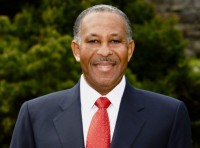Meet the Candidates: Election 2013
The Debate is Progressive vs. Conservative Ideology in the County Executive Race
Incumbent Westchester County Executive Robert Astorino and challenger Noam Bramson, Mayor of New Rochelle, have been facing off at numerous debates and forums across the county. As Election Day draws near, the differences in approach to problems faced by the county from childcare budget cuts to state mandates and the vision for the future of Westchester of each candidate becomes increasingly more solid and the divergence between the ideologies of the two candidates very clear.
ROBERT ASTORINO
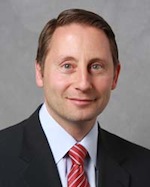 Endorsements: Republican Party, Conservative Party, New York State League of Conservation Voters, New York State Police Chiefs Benevolent Association, Hispanic Law Enforcement Association, Affiliated Police Associations of Westchester, Westchester and Putnam Building and Construction Trades Council, Local ’60 Laborers Union, Animal Defenders of Westchester, Westchester4Geese
Endorsements: Republican Party, Conservative Party, New York State League of Conservation Voters, New York State Police Chiefs Benevolent Association, Hispanic Law Enforcement Association, Affiliated Police Associations of Westchester, Westchester and Putnam Building and Construction Trades Council, Local ’60 Laborers Union, Animal Defenders of Westchester, Westchester4Geese
Robert Astorino, age 46, seeks another four-year term to continue the work he began as Westchester County Executive in January 2010. He took the job with a $166 million budget deficit and an affordable housing settlement with HUD in its first stages, and says he is proud of his governance record in tackling these challenges.
Despite criticism of his stance against HUD for what he perceives as a threat to local zoning ordinances that might allow the federal government to dictate where affordable housing should be built, and at any height and density in the county, Astorino is clear he would not do anything different given the opportunity.
With financial issues continuing into the foreseeable future, Astorino affirms that getting the county’s fiscal house in order remains his number one concern. He is pleased to have kept his promise to residents to not increase the county’s portion of property taxes for three years and intends to continue that promise for a fourth year and hopefully for four more years after that.
Entering into the next budget season, Astorino foresees no need for layoffs and credits the continuing reduction of the county’s deficit in large part to employee contributions to their healthcare costs.
Astorino intends to work with municipalities, other levels of government, school districts, not-for-profit agencies and other organizations to lobby Albany about escalating mandates, and a better pension system.
“Albany’s reckless spending is affecting everyone,” Astorino claims. We need a government mindset that doesn’t spend more than we have.
Regarding the increase in parental childcare contributions from 15 to 27 percent made during the current budget season, Astorino confirms the 27 percent contribution will remain in the next budget. He contends the percentage increase allows more families into the program.
In helping municipalities manage through financial hardship, Astorino developed partnerships during his tenure with several local governments to help cut costs through shared services. For example, Ossining could no longer afford to pay its police force and has now employed county police. Under the Safer Communities initiative Somers and South Salem School districts were provided School Resource Officers from the county’s Department of Public Safety. The county is reimbursed for all costs.
Astorino does not think a special county office or commissioner should be appointed to manage shared services because he considers that to be his job and the added position would simply add unnecessarily to county government’s size.
In terms of corporate growth, Astorino is concerned about large businesses that have considered leaving the area. Citing Pepsico as an example, Astorino promotes the use of incentive packages to keep businesses in the county. He also strongly supports growth of a biomedical hub in the Grasslands area.
With the rebuilding of the Tappan Zee Bridge, Astorino is a proponent of bus rapid transit into Westchester County with a potential hub located in White Plains for access to Metro North trains south, and east to west access along the I-287 corridor.
Other growth programs include the development of the LDC (Local Development Corporation) to provide tax-free bonds for nonprofit and civic organizations and the office of Economic Development, which provides resources for small businesses.
Before taking office as County Executive, Astorino had a career in the radio industry as the station manager and program director of The Catholic Channel on Sirius-XM Satellite Radio and hosted a weekly radio show from St. Patrick’s Cathedral with the archbishop of New York. In 2001, he helped launch ESPN Radio in New York and became the station’s senior producer.
Rob was first elected to public office at age 21, serving as a member of the Mount Pleasant Board of Education. He went on to serve for 12 years as a councilman on the Mount Pleasant Town Board, including six years as deputy supervisor. In 2003, he was elected to the Westchester County Board of Legislators.
Rob earned a Bachelor of Arts degree in Communications at Fordham University, where he also minored in Spanish and Political Science.
Astorino is a lifelong resident of Westchester. He lives in Mount Pleasant, where he and his wife, Sheila, are raising three young children.
For more information about this candidate visit www.robastorino.com.
NOAM BRAMSON
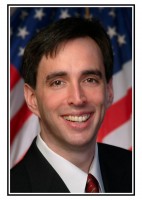 Endorsements: Democratic Party, Working Families Party, Independence Party, Yonkers Federation of Teachers, Sierra Club Lower Hudson Group, New York League of Conservation Voters, Westchester Putnam Central Labor Body (AFL-CIO), Civil Service Employees Association (CSEA), New Yorkers Against Gun Violence, NARAL Pro-Choice New York and WCLA – Choice Matters PAC, Planned Parenthood Hudson Peconic Action Fund, 1199 SEIU Healthcare Workers
Endorsements: Democratic Party, Working Families Party, Independence Party, Yonkers Federation of Teachers, Sierra Club Lower Hudson Group, New York League of Conservation Voters, Westchester Putnam Central Labor Body (AFL-CIO), Civil Service Employees Association (CSEA), New Yorkers Against Gun Violence, NARAL Pro-Choice New York and WCLA – Choice Matters PAC, Planned Parenthood Hudson Peconic Action Fund, 1199 SEIU Healthcare Workers
Noam Bramson, age 44, comes to the Westchester County Executive race with 10 years of service on the New Rochelle City Council and nearly eight years as mayor of that city under his belt.
With a big picture approach, the Bramson campaign claims Westchester County needs a coherent strategy that promotes jobs within a thriving green regional economy to make communities healthy.
Citing six million-plus square feet of vacant office space in the county and the increasing loss of residents in the 25 to 45 age group, Bramson agrees it is important to attract large corporate business with tax breaks and low-cost financing, but he feels that strategy alone is not sufficient. To get a jump on capturing opportunities made possible by construction of a new Tappan Zee Bridge and improvements along the I-287 corridor, Bramson would include focus on the built environment by promoting transit-based housing development models and infrastructure improvements that bring more walkability to the county’s urban downtowns.
Bramson claims the employees large businesses are hiring prefer to live near where they work and they want to commute to and from their jobs on mass-transit, by bicycle or walking, and they want shopping, entertainment and green open space easily accessible.
In New Rochelle, Bramson developed a sustainability plan that helped the city get a handle on challenges earlier in the process. He wants to do the same for Westchester by injecting new energy into the County Planning Department.
When it comes to finances and taxes, Bramson says it is not realistic to only talk about the one-sixth of the property tax bill residents pay to county government and to hold the line on that one portion.
Recognizing that just about every mayor, town supervisor and school board has been through the meat grinder financially, Bramson is confident they have an appetite for shared services they can opt into if they want. He wants to appoint a central county office with a commissioner to address the overall tax burden and create shared services opportunities.
Bramson said he would hold the county’s portion of property taxes within the state mandated 2 percent.
On affordable housing, Bramson believes Westchester is not on the right path. Apart from the county’s settlement with HUD, which Bramson says needs to be legally upheld, there is demand for more affordable residential units to accommodate a growing workforce. Bramson stresses he will stand up for home rule on this issue and encourages collaborative discussion between the county and municipalities.
Bramson says he will restore cuts made to childcare.
“Our lives are interrelated. We can’t wall off stress,” he explains, adding that it is the poorest of the poor who have been hurt by the increase (from 15 percent to 27 percent) in parental childcare contributions.
Bramson’s position is that parents who want to work are not able to afford both childcare and transportation costs and end up on welfare, with their children requiring more services during their K to 12 years, which is more costly in the long run.
“The number of childcare slots may have increased, but they are not filled,” he adds.
Bramson also does not understand why the county did not install UV filters at the county’s hook-up to the Kensico Dam as required by the Safe Water Act. Fines and penalties for noncompliance on this count and on the HUD lawsuit would have more than paid for the childcare costs, he claims.
Bramson is a life-long Westchester resident and a product of the New Rochelle Public Schools. He went to Harvard University, where he completed his undergraduate degree and then received a Masters degree in Public Policy.
Bramson has served on the Boards of the New Rochelle Campership Fund, the Castle Gallery, the Fund for Educational Excellence, the New Rochelle Council of Community Services, the Westchester Jewish Council, and the United Way of New Rochelle.
Bramson lives in New Rochelle with his wife Catherine Stern Bramson and their two sons Jeremy and Owen who attend New Rochelle Public Schools.
For more information about this candidate visit www.noambramson.org.
Municipal Leaders Compete in Contest for Open District 5 County Legislature Seat
There is no incumbent in the race for the District 5 Westchester County Legislature seat representing Scarsdale, most of White Plains and part of Harrison this election. The seat, currently held by William Ryan (D-White Plains) is open, as Ryan is not running for re-election. Two candidates from the constituent communities, Benjamin Boykin, White Plains Common Councilman and Miriam Levitt Flisser, former Mayor of Scarsdale are vying for the position. Each candidate comes from a different background and each brings years of experience from their respective municipality to the table.
Endorsements: Democratic Party, Working Families Party, Independence Party, CSEA, Westchester/Putnam Central Labor Body, AFL-CIO, Black Democrats of Westchester, Building and Construction Trades of Westchester and Putnam Counties, WCLA – Choice Matters, Planned Parenthood Hudson Peconic Action Fund Committee, Westchester County Police PBA, Yonkers Federation of teachers, SEIU Local 200 United, 32 BJ
Benjamin Boykin, a 14-year member of the White Plains Common Council, is seeking election as Westchester County District 5 Legislator.
After many years of working on the redevelopment of downtown White Plains, the Westchester County seat, Boykin is ready to bring his expertise to the next governmental level. He believes there is need for a legislator with his proficiency in finance and business and his experience in running a major municipality in the county. Boykin is a three-time president of the White Plains Council and has chaired the Budget and Management Advisory Committee, helping to bring the city through tough financial challenges.
Boykin believes all municipalities are microcosms of the world, each with similar issues and in the case of White Plains, Harrison and Scarsdale, each sharing a region with taxes, flooding, infrastructure and transportation concerns that affect them equally and have an impact on residents’ quality of life.
Boykin is particularly concerned about the affect of unfunded mandates from Albany that have hurt municipalities financially and intends to leverage his relationships with existing senators and assemblymen at the state level to lobby Albany for relief.
Boykin sees the role of county government as a regional entity set to serve and assist municipalities in the areas of public safety, providing police and emergency preparedness including bomb equipment and a rescue helicopter that could not be purchased and managed by any municipality alone. Water and waste treatment and air quality controls as well as public health are critical programs run at the county level. Boykin also sees the county as the one entity that can efficiently act as a social safety net.
Concerned that budget cuts to childcare have created a serious problem that has hurt people, Boykin contends that what goes into the county budget identifies priorities and establishes policy. “We have to be vigilant about what we are doing for the people of the county,” he says. “The budget process must have more transparency. We need to be smart about how we fund things. People need to be safe and to feel that they are safe.”
Regarding growth of the economy and creation of jobs, Boykin wants to see a more proactive approach from the county in seeking new business. “We need to attract companies with high-quality high-paying jobs,” Boykin contends. “There is a lot of office property vacant in the county. Municipalities may need to look at zoning changes that can be made to encourage new tenants and with that, work with the county as it invests in those potential tenants with tax incentives and other programs.”
Boykin has had an interest in city and regional planning since serving on the Greensboro, North Carolina Planning Board at age 26. “I am always looking at interesting ways to solve problems or to create new programs,” Boykin says. He is excited about the potential the new Tappan Zee Bridge and improved I-287 corridor will bring to the area. “We must synchronize our planning with forethought and make adjustments to take advantage of the transit hub we have become.”
Before his election to the White Plains Common Council Boykin served for seven years on the White Plains School Board. He was chairman of the White Plains Shared Services Committee and the White Plains Youth Board, on the Board of Directors of the White Plains Outdoor Arts Festival, Meals-on-Wheels of White Plains, past treasurer of the Lois Bronz Children’s Center and a member of Omega Psi Phi Fraternity.
Boykin is currently president of Ben Boykin & Associates CPA. He retired as Assistant Treasurer of Nabisco, Inc. and is a former trustee of Bennett College. He received a Bachelor of Science in Accounting from the University of North Carolina and an MBA from Kellogg Business School.
Boykin is a 23-year resident of White Plains, where he lives with his wife Carsandra. His two daughters are graduates of White Plains High School.
For more information about this candidate visit www.voteboykin.com.
MIRIAM LEVITT FLISSER
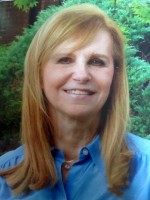 Endorsements: Republican Party, Conservative Party
Endorsements: Republican Party, Conservative Party
Miriam Levitt Flisser, former Mayor and Trustee of the Village of Scarsdale and a practicing pediatrician, is seeking election as Westchester County Legislator for District 5.
With a broad background in public service that includes appointments as Scarsdale Fire Commissioner, Police Commissioner, Municipal Services Chair, Technology Chair and Parks & Recreation Chair, Levitt Flisser explains that her many service activities as well as her work in the medical sciences, give her a unique view to problem solving as well as consensus building and the ability to balance communications between parties during disputes; this she credits to her experience in dealing with patients in her pediatric practice, their illnesses, treatment and their parents. “It’s always about balance,” she says.
Born in a Displaced Persons Camp for Holocaust survivors, Levitt Flisser came to the United States as a young child where she grew up in the Bronx. “I remember the first time I saw the Statue of Liberty,” she said in a recent interview. “Everything I have done in my life has been service in gratitude for America.”
Levitt Flisser attended medical school at her mother’s suggestion because it would be a service to be a doctor. Later when she married and moved from the Bronx to Scarsdale, Levitt Flisser became involved with her neighborhood association. Upon being asked to volunteer, she soon became known as the go to person for arranging to get things done.
This volunteer work lead to her involvement with the Scarsdale Board of Trustees and eventually to being elected mayor.
With a head for science, Levitt Flisser says she has a keen sense for operations issues. During the 100-year storm a few years back, she was standing on a rooftop in Scarsdale and witnessed the flooding below. This observation lead her to design rain gardens, which have become commonplace in the village and have been recognized by the New York State Office of Flood Management. The Fox Meadow Drainage Basin is one of her projects.
During her tenure as Mayor of Scarsdale, Levitt Flisser says she stayed close to home, never venturing too far in case any problem might arise. The safety of her constituents was her biggest concern. She is responsible for the launch of an interactive Village website and an emergency notification system.
Charged with the fiscal responsibility to keep the Scarsdale budget with the 2 percent tax cap, Levitt Flisser found ways to cut costs while maintaining services, this strength she intends to bring to the county level.
“The focus should be on residents and their quality of life,” Levitt Flisser emphasizes.
The three issues driving Levitt Flisser’s candidacy are high taxes – she feels it is not right that Westchester is the highest taxed county in the country.
Levitt Flisser is a strong proponent of home rule and will work to protect local zoning. She believes in the local answer to most government issues; this begins with the neighborhood associations and works its way up from there. “It is important to advocate for and preserve local standards and dreams,” she says.
Another driver for Levitt Flisser is the need to increase prosperity in Westchester. She wants to see the county working for municipalities to help them grow businesses. “The objective is to help the business owner,” she advocates. “Westchester County needs to create a positive image for the small business.”
With a base in Scarsdale, Levitt Flisser claims she is flexible and will listen to the residents of White Plains and Harrison on all issues.
Levitt Flisser is a Board Certified Pediatrician with a private practice in Westchester County for over 25 years. She was the first woman to be appointed Chief of Staff at Lawrence Hospital in Bronxville, is an Honorary Founder, Albert Einstein College of Medicine, a member of ServNY Physicians, and Medical Director of Bronxville School District, St. Joseph and Chapel Schools.
Levitt Flisser moved to Scarsdale 38 years ago, where she now lives with her husband. Their three adult children are Scarsdale Public School graduates.
For more information about this candidate visit www.electmiriamwestchester.com.
Note that Alfreda Williams, Westchester County Legislator for District 8 is running uncontested during this election.
White Plains Mayoral Race Highlights Inevitable Changes Coming Down the Pike
In the race for White Plains Mayor, candidates Thomas Roach, incumbent, and Casimiro Cibelli, challenger, discuss their different approaches to important issues facing White Plains. On each candidate’s mind is the rebuilding of the Tappan Zee Bridge and White Plains’ role in any future regional development. Both candidates love they city they call home. How they interact with change highlights their differences.
CASIMIRO CIBELLI
 Endorsements: Republican Party, Conservative Party, Association of Jewish Professionals
Endorsements: Republican Party, Conservative Party, Association of Jewish Professionals
Casimiro Cibelli is seeking election as Mayor City of White Plains.
Tired with what he refers to as the one-party rule of the Democrats, Cibelli is once again seeking office. His former campaigns, one for a seat on the White Plains Common Council and the other, a run for District 5 Westchester County Legislator were unsuccessful. However, that does not daunt this motivated candidate.
Critical of the White Plains Democrats, who he sees filling seats for their own political gain, Cibelli says the first thing he would do if elected is to make a 10 percent pay cut across the board for all city positions. He would also eliminate lifetime healthcare benefits for Council members. “A true statesman does not seek to draw benefits and a salary,” he advocates, adding that he would also work to establish term limits. “Eight years is enough. It takes two terms to get things going, after that, it’s time to step down.”
Cibelli is concerned that illegal housing in the close-in neighborhoods of White Plains such as Battle Hill is causing a dangerous situation. “These violations are being ignored,” Cibelli claims. “We need to increase fines. I would tell the housing commissioner to bring the violators into court or their job would be on the line.”
Cibelli also considers the parking situation in White Plains to be disgraceful. “$25 parking tickets are chasing people away,” he says. “The city should do some marketing by sending out a press release every holiday announcing parking (on-street and in city lots) is free. The public likes a bargain. This would make shoppers gravitate to the city and help increase sales tax revenues.”
Cibelli questions spending decisions made by the city, such as the side-loading garbage trucks. “These put jobs at risk and no one is checking the garbage to make sure we are maintaining environmental standards,” he says.
Cibelli also questions where the upcoming 4 percent obligation for Fire Department salary increases will come from. He advocates for a zero percent property tax increase, rather than promises to keep within the governor’s 2 percent tax cap.
In terms of White Plains serving as a transportation hub with bus rapid transit coming off the Tappan Zee Bridge and I-287, Cibelli recommends an underground shopping mall at the existing Metro North site with an improved modern station and a mixed-use structure above. “This area would be pedestrian friendly. I want to create a White Plains with the type of environment that attracts high quality employees, a world-class city,” he says.
Cibelli calls himself a Teddy Roosevelt Conservationist. “I like a rich and natural environment.” He is disappointed that the city council did not take action to purchase the former Ridgeway Country Club property when it had the chance. “Instead, the council was politically motivated and that hurt residents,” he claims.
When he moved to White Plains in 1999, Cibelli and his wife Patricia thought the property taxes were reasonable. “Now they are outrageous. If I was a first-time teacher, I wouldn’t be able to afford to live here,” he claims, adding that the only reason he can now is because he has worked his way up the ranks to a higher salary.
Cibelli is an administrator with the New York City Department of Education. He served for five years on the White Plains Planning Board during the Delfino administration. He has received numerous accolades and awards for his work in education.
Cibelli lives with his wife in the south end of White Plains where they are raising two grade-school aged children who attend a local private school.
THOMAS ROACH
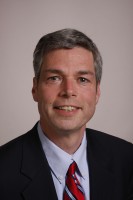 Endorsements: Democratic Party, Working Families Party, Independence Party, New York League of Conservation Voters, Westchester/Putnam Central Labor Body AFL-CIO
Endorsements: Democratic Party, Working Families Party, Independence Party, New York League of Conservation Voters, Westchester/Putnam Central Labor Body AFL-CIO
Thomas Roach is seeking re-election as Mayor, City of White Plains.
With a combined 12 years of service on the White Plains City Council and as Mayor after a special election a little over two years ago when the former mayor stepped down, Roach is eager to continue the work he has begun to bring White Plains forward during this exciting time of transition.
A civil litigation attorney by profession, in addition to being Mayor, Roach currently is a member of the Tappan Zee Bridge Mass Transit Task Force and serves on the Executive Committees of the New York Conference of Mayors and the Westchester Municipal Officials Association.
Roach is encouraged by the spirit of community he feels in White Plains. By attending the many events he is invited to around the city he has learned that one important role of being Mayor is to be out with the constituents attending all those events. This is one way to put your finger on the pulse to find out what is going on. “White Plains is a true community, not isolated blocks. It is my job as mayor to ensure it stays that way,” he says.
Coming into the lead position at city hall during a tough economic period, Roach is thankful for the City Council he works with. “We have been able to bring the city budget within the 2 percent tax cap without borrowing to pay for pension increases. When you stack borrowing, it comes back in the future,” Roach explains. “The city has been recognized for its efforts to stabilize and regained its Aa1 rating from Moody’s [earlier this year].”
The number one, biggest issue for Roach is the safety of White Plains residents. “That’s the one thing that keeps me up at night,” he says. “I feel like I have to be on offense and act as goalie at the same time.”
Roach explains that a national shift to city living utilizes the benefits of a transit rich environment. With pedestrian and bicycle access in the urban downtown, it’s not necessary to use the car for everything. “People like the walkability,” he says. “The new generation is not as committed to driving, for them, time behind the wheel is wasted time.”
Having adopted the Complete Streets concept for moving traffic and pedestrians around a city, where the car once ruled, new elements at street level are encouraged to attract pedestrians. Roach is particularly proud of the city’s new bicycle lanes.
Roach advises that the Post Road area is headed for a rebirth.
White Plains Hospital has invested in a new building and new housing with a community center is planned for Winbrook. Further down, at the former Scholz automobile showroom site, the city is looking for a unique mix of residential and retail development to encourage pedestrian traffic along the Post Road, Roach explains.
New retail is being developed along Bloomingdale Road where connections are being encouraged to link the new center with adjacent neighborhoods. In fact, Roach has proposed that any new development adjacent to a neighborhood needs to provide linkages and enhancements to that neighborhood.
With some form of mass transit heading to White Plains from the new Tappan Zee Bridge and I-287, Roach is eager to begin preparations to improve the city’s transit center. White Plains has applied for a $2 million planning grant for the Metro North Train Station. Working together with the MTA and the county, which also own land at the station, Roach hopes to create a new mixed-use center with access to the Bronx River.
While promoting a regional view for transit-oriented development, Roach says it is important to protect and enforce the zoning codes and existing neighborhoods. “Development should be kept to the downtown,” he concludes.
To Roach sustainability is a mindset that is incorporated into a city from the ground up. “We have to be frugal with what the Earth has he says.”
Roach lives in White Plains with his wife Beth and their two sons Henry and Lawson. Henry and Lawson are the fifth generation of Roach’s family to live in White Plains.
For more information about this candidate visit www.vote4roach.com.
White Plains Council Race Takes Shape Around the Large and Smaller Issues
This election season three seats on the White Plains Common Council are up for re-election and two challengers have come forward with concerns logically associated with a mid-sized city that is on the verge of a growth spurt. One other name that will appear on the ballot on the Republican Party line is Carl Albanese. He, however, has chosen not to run a campaign.
ANNEMARIE ENCARNACAO
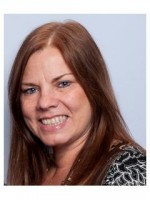 Endorsements: Republican Party, Conservative Party
Endorsements: Republican Party, Conservative Party
Annemarie Encarnacao is running for election to the White Plains Common Council. As a lifelong resident of White Plains for 46 years, Encarnacao has lived in five different neighborhoods in the city (Prospect Park, Soundview, Battle Hill, Fisher Hill and The Highlands), giving her a valuable perspective of the diverse nature of the White Plains community. She has worked with the White Plains Public Schools PTA for many years, at one time being the face of hospitality for parent events at the high school.
Several pressing issues drove her to put in her name for a nomination to run for a spot on the City Council. The first is the increase in property taxes that are pressing her family’s financial situation and that of senior citizens who, as a real estate broker with an office in the city’s downtown, she has personally seen lose their homes because they can no longer afford to live in the community.
“I would like to see a City Senior STAR program to help alleviate the taxes so they can stay in their homes,” Encarnacao says.
Encarnacao is also concerned about the purchase of two open space parcels the Common Council has voted down. The first was a proposal by NY Hospital to give the city 60 acres of space for ball fields and a park. The second is the denial of the purchase of the former Ridgeway Country Club, which has lead to the very strained situation between the Gedney neighborhood, the French American School of New York (FASNY) that purchased the property to turn it into a regional school and the City Council, which is caught in a SEQRA process between the two.
According to Encarnacao, homeowners in the vicinity of FASNY are suffering a decrease of as much as 20 percent on the value of their homes.
Encarnacao says this has hurt residents. She wants a vote on the Council, so she can do something about it.
Encarnacao lives in the Highlands neighborhood with her husband Rui. Their two adult children graduated from White Plains Public Schools.
JOHN KIRKPATRICK
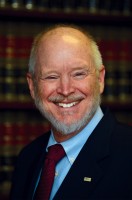 Endorsements: Democratic Party, Working Families Party, Independence Party
Endorsements: Democratic Party, Working Families Party, Independence Party
Kirkpatrick seeks election to the White Plains Common Council after having been appointed in January to fill the vacancy caused by the election of David Buchwald to the NYS Assembly.
A resident of White Plains since 1974, Kirkpatrick is a city planner and attorney. He practices land use and environmental law at his offices in downtown White Plains. He has lived in three different White Plains neighborhoods, Carhart, Fisher Hill and Gedney Farms, and been active in their neighborhood associations.
Kirkpatrick also participated in writing all versions of the White Plains Comprehensive Plan adopted since the late 1970s, and was a consultant to the City on the comprehensive revisions to the Zoning Ordinance adopted in 1982. He would like to see an update to the plan in process shortly.
With his extensive background in city planning, Kirkpatrick hopes to provide expertise to capture the tremendous potential he sees coming White Plains’ way. “The city has been good to me and it’s time for me to give back,” Kirkpatrick says. He adds that he spent 40 years working on issues related to environmental development and has looked at and worked all sides of the development spectrum, from representing developers to defending neighborhoods against development. This process has enabled him to make the process transparent so people understand what’s going on.
Regarding the possibility of adding bus rapid transit to White Plains as it comes off I-287 to connect with the White Plains Transit Center, Kirkpatrck says that will only work if White Plains has dedicated bus lanes. “How do we give up a traffic lane?” he asks.
Kirkpatrick suggests that the city might look at what Greenburgh has planned on Route 119 for BRT and see how White Plains might be able to take advantage of that access route.
Kirkpatrick would like to see the transit center turned into something amazing for White Plains, like Grand Central Station is for New York City. On city-owned land adjacent to the site, he proposes a mixed-use project with residential and retail applications. One concern is that the designs of previous proposals included high structures, which would wall off some neighborhoods, virtually separating them from the rest of the city. “We don’t want to do that,” Kirkpatrick said.
Kirkpatrick has served with the Sustainability and Environmental Enhancement Committee, Cub Scouts, White Plains Beautification Foundation, Rotary, Downtown Business Improvement District and the Friendly Gathering.
Kirkpatrick lives in White Plains with his wife Susan. Their three adult children graduated from White Plains Public Schools.
To find out more about this candidate visit www.vote4kirkpatrick.com.
JOHN MARTIN
 Endorsements: Democratic Party, Working Families Party, Independence Party
Endorsements: Democratic Party, Working Families Party, Independence Party
John Martin is seeking re-election to the White Plains Common Council after winning in 2011.
As a 31-year resident of White Plains Martin first lived in the Fisher Hill neighborhood, where he was active in the neighborhood association before moving to Gedney Farms, where he now resides.
Martin is an attorney with a business in the White Plains downtown.
In 1994 Martin served on the Common Council and chaired the committee responsible for developing the 1997 White Plains Comprehensive Plan. Subsequent to that time, Martin served as a member and chair of the city’s Board of Assessment Review and as Treasurer and chair of the Business Improvement District (BID). He has also served as vice-chair of the White Plains Urban Renewal Agency.
In 1998 he founded the city’s St. Patrick’s Day Parade and has led that effort for all 14 of the parades.
Today, Martin serves as chairman of the Recreation Advisory Committee and chairman of the Capital Projects Board.
For Martin the most urgent issue facing White Plains at this time is the city’s fiscal health. In the three budgets he has worked on since election to the Council, the budget has remained under the 2 percent tax cap and the city has not borrowed to pay for pensions and other unfunded mandates. The money has come out of the city’s operating budget, making it possible for the Moody’s upgrade to Aa1 rating.
As chair of the Recreation committee Martin says he is looking into skiing programs with the cooperation of Greenburgh. “We are trying to create better and more exciting city recreation ad sports programs,” Martin explained. “A skiing program would be well used if we could work with the school district.”
Martin also wants to see the White Plains Transit Center developed and he warns that there must be a balance between business and residents. “We must protect the neighborhoods,” Martin contends. “We can’t allow the businesses to creep in. We have to be diligent about that.”
Martin promotes a new update to the Comprehensive Plan and says he would like to see the current BID boundaries extended down to the train station and to the hospital. “The BID has great services and programs, that could be help to these two critical gateways to White Plains,” he explains.
Martin lives with his wife Patty and four children in the Gedney Farms neighborhood.
For more information about this candidate visit www.martin4whiteplains.com.
CLAUDIA MURPHY
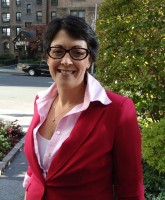 Endorsements: Republican Party, Conservative Party
Endorsements: Republican Party, Conservative Party
Claudia Murphy is seeking election to the White Plains Common Council.
A White Plains resident since 1999, Murphy has lived in Westchester her entire life, growing up in Scarsdale and attending the Scarsdale Public Schools.
“White Plains was where we always went for entertainment. With my pet service business I am in and out of White Plains neighborhoods all the time. I know this city and what the residents are saying,” Murphy explains.
What got her motivated to run for the Common Council was the application by Sunrise for a detox center in the Carhart neighborhood.
“That’s my neighborhood,” Murphy notes. “I had no idea what was going on and my neighbors who speak mostly Spanish didn’t either. We had no neighborhood association, nowhere to go. Appearances at the Citizens to Be Heard segment of the Council meetings were not pleasant experiences. I know what it feels like to be on the other side of that bannister, and I want to be elected to make sure no other residents feel that way.”
Today, Murphy is the Treasurer of the Carhart Association and President of the Live Oaks Condominium where she lives.
Murphy says she is a centrist, tending to liberal on social issues and fiscally a conservative. She wants to see city government become more about the people.
“I believe people should lead by example. I would not ask someone to do something I would not do myself, so why should Council members receive healthcare benefits when they are asking city staff to cut back?”
Concerning the budget, Murphy said she would look at every expense and analyze department budgets. “Why are we putting in bike lanes? They are very expensive. I’d rather see a new police officer than a bike lane. We are not Portland, Oregon. We are in the Northeast. There must be other forms of sustainability that might serve us better.”
In her tour of White Plains, ringing doorbells and handing out palm cards, Murphy says she has heard many complaints about White Plains parking and the $25 tickets.
The scenario goes like this, she explains: When you plan to go out to dinner you have a choice, you can either turn one way and go downtown and face the parking, or you can turn the other way and park somewhere for free. ‘Which decision do you think most residents are making?” she asks.
Murphy has a Bachelor of Science in Biomedical Photographic Communications from Rochester Institute of Technology. She was the head of the photographic department at Regeneron Pharmaceuticals.
To find out more about this candidate visit www.claudiaforcommoncouncil.com.
BETH SMAYDA
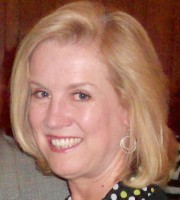 Endorsements: Democratic Party, Working Families Party, Independence Party
Endorsements: Democratic Party, Working Families Party, Independence Party
Beth Smayda is seeking re-election to the White Plains Common Council.
Smayda is president of the White Plains Common Council and chair of the Budget and Management Advisory Committee. Having chaired the budget committees for the White Plains League of Women Voters for 20 years, Smayda has followed the city’s financial history for that same period and jokes that stored away in her attic, somewhere, there are 20 copies of previous White Plains budgets.
“I followed the budget going into the recession and I worked with the budget through the recession, applying what I know about finances and budgets to find creative ways to turn things around,” Smayda explained. “After four years we have stabilized the city’s finances but we still have challenges going forward with assessment growth and the sales tax is not growing.”
In large part, it was due to Smayda’s work that White Plains was able to reaffirm is Moody’s Aa1 rating.
In looking to the next budget season, Smayda said the Council wants to be fair with employees but the city must continue to find ways to be more efficient with its technology use. “We must continue to find ways to consolidate. The automated side-loading garbage trucks are one new technology the city is using to keep costs steady,” she explained.
Smayda wants to see future development and growth in White Plains follow the template set forth by the Comprehensive Plan. “It’s time for an update,” she says, adding: “We must keep the downtown, downtown, and there are numerous opportunities to do that by working along the major corridors such as the Post Road.”
Smayda feels it is very important to keep the city’s open spaces open – places for people to go for renewal. “We have to be conscious of the needs of the people in the community,” she explains. Better pedestrian safety and linkages between neighborhoods and centers are key concerns.
With regard to White Plains relationship with the county and other levels of government, Smayda believes White Plains must fully take advantage of the resources that are out there and keep relationships good to help bring in grants. “We are very active in petitioning the state to communicate what we want,” she explains.
Smayda has been chair of the PTA Budget Committee, a member of the School District Annual Budget Committee, and a member of the White Plains PTA Council.
She also volunteers as Coordinator of Habitat for Humanity builds in White Plains.
Smayda has a Master of Public Affairs, Concentration in Labor Economics and Economic Development; LBJ School of Public Affairs, University of Texas at Austin, and BA in Public Administration and Political Science, Minor in Economics; Augustana College, Rock Island, IL.
Smayda has been a resident of White Plains for 30 years with her husband and three children.
To learn more about this candidate visit www.bethsmayda.com.

